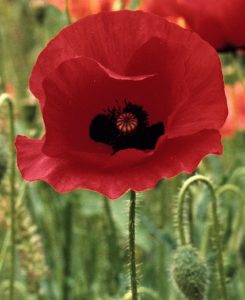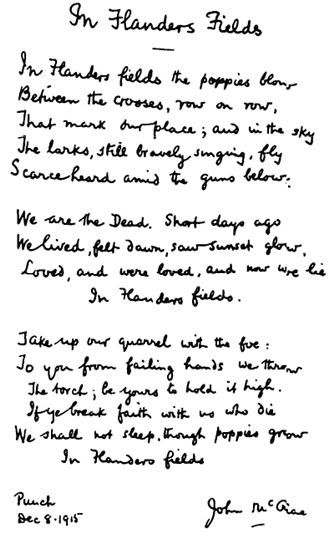Flanders Field Poem
“In Flanders Fields” is one of the most notable poems written during World War I.
This poem is most often read on Remembrance Day – November 11th. Remembrance Day, as we called it in Canada, is important because it signified the official end of World War I on that date in 1918. The major hostilities of World War I were formally ended “at the 11th hour of the 11th day of the 11th month” of 1918 with the German signing of the Armistice. November 11th, at 11am.
Growing up in Canada we had a special ceremony every November 11th to celebrate “Remembrance Day”. As part of the ceremony, we would pause and take a minute of silence to remember all those that have served and especially those that gave the ultimate sacrifice allowing us to have the freedoms we enjoy.
It’s a tradition I still carry with me today.
Flanders Field has been called “the most popular poem” produced during that period and written by Canadian physician and Lieutenant Colonel John McCrae. It is believed to have been written on 3 May 1915 after he witnessed the death of his friend, Lieutenant Alexis Helmer, 22 years old, the day before. The poem was first published on 8 December of that year in the London-based magazine Punch.
Will you join me in a minute of silence to thank all those that have served and then read the poem below?
In Flanders Fields
By: Lieutenant Colonel John McCrae, MD (1872-1918)m Canadian Army
In Flanders Fields the poppies blow
Between the crosses row on row,
That mark our place; and in the sky
The larks, still bravely singing, fly
Scarce heard amid the guns below.
We are the Dead. Short days ago
We lived, felt dawn, saw sunset glow,
Loved and were loved, and now we lie
In Flanders fields.
Take up our quarrel with the foe:
To you from failing hands we throw
The torch; be yours to hold it high.
If ye break faith with us who die
We shall not sleep, though poppies grow
In Flanders fields.
Blessings,


